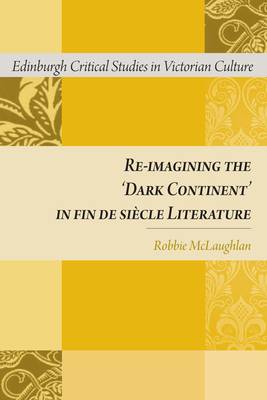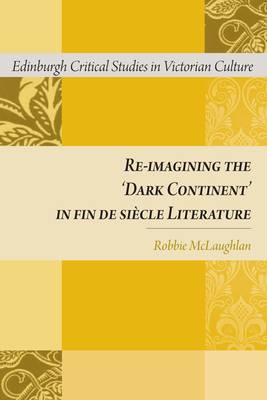
- Afhalen na 1 uur in een winkel met voorraad
- Gratis thuislevering in België vanaf € 30
- Ruim aanbod met 7 miljoen producten
- Afhalen na 1 uur in een winkel met voorraad
- Gratis thuislevering in België vanaf € 30
- Ruim aanbod met 7 miljoen producten
Re-Imagining the 'Dark Continent' in Fin de Siècle Literature
Robbie McLaughlanOmschrijving
Explores the fin de siècle mission to open up the 'Dark Continent'
This study maps the effects of a cartographic blankness in literature and its impact upon early Modernist culture, through the nascent discipline of psychoanalysis and the debt that Freud owed to African exploration. It demonstrates that tales of intrepid exploration and of dramatic cultural encounters between indigenous populations - often serialised in missionary magazines - had a profound influence on every facet of late Victorian and early Modernist culture. As Robbie McLaughlan shows, this influence manifested itself most clearly in the late Victorian 'best-seller' which blended this arcane Central African imagery with an interest in psychic phenomena. The chapters examine: representations of Black Africa in missionary writing and Rider Haggard's narratives on Africa; cartographic tradition in Conrad's Heart of Darkness and Jung's Memories, Dreams, Reflections; and mesmeric fiction, such as Richard Marsh's The Beetle, Robert Buchanan's The Charlatan and George du Maurier's Trilby.
Key Features:
* Opens up the 'dark continent' and its literary, historical and theoretical manifestations
* Argues for an anticipation of a modernist aesthetic suggesting an unexplored relation between fin de siècle sensation literature, in particular mesmeric fiction, and psychoanalysis
* Diverges from established colonial histories by drawing on an archive of special and neglected material Keywords: postcolonial, psychoanalysis, fin de siècle, mesmerism, colonial, missionary, cartography
Specificaties
Betrokkenen
- Auteur(s):
- Uitgeverij:
Inhoud
- Aantal bladzijden:
- 256
- Taal:
- Engels
- Reeks:
Eigenschappen
- Productcode (EAN):
- 9780748647156
- Verschijningsdatum:
- 1/10/2012
- Uitvoering:
- Hardcover
- Formaat:
- Genaaid
- Afmetingen:
- 155 mm x 236 mm
- Gewicht:
- 521 g

Alleen bij Standaard Boekhandel
Beoordelingen
We publiceren alleen reviews die voldoen aan de voorwaarden voor reviews. Bekijk onze voorwaarden voor reviews.











